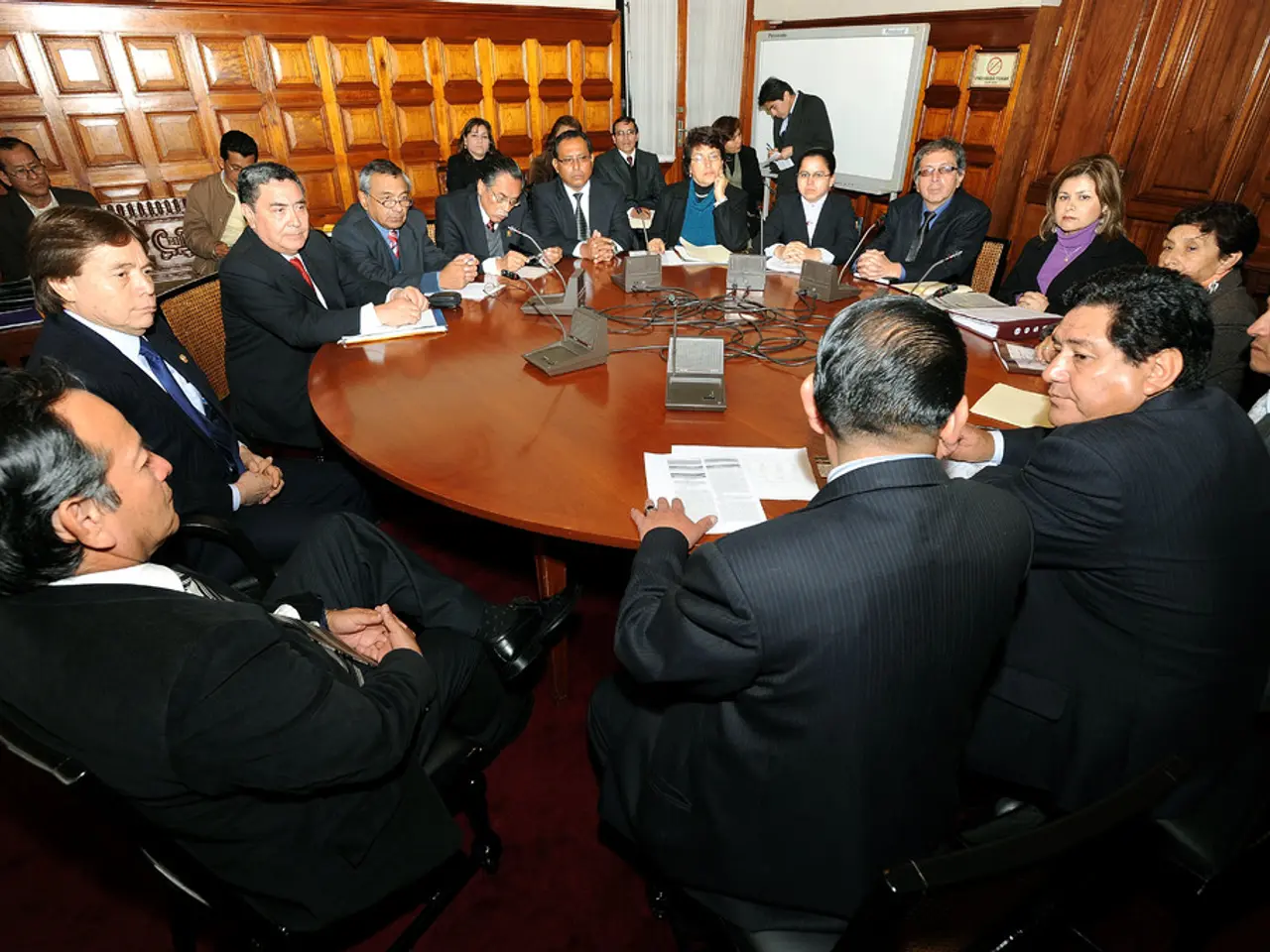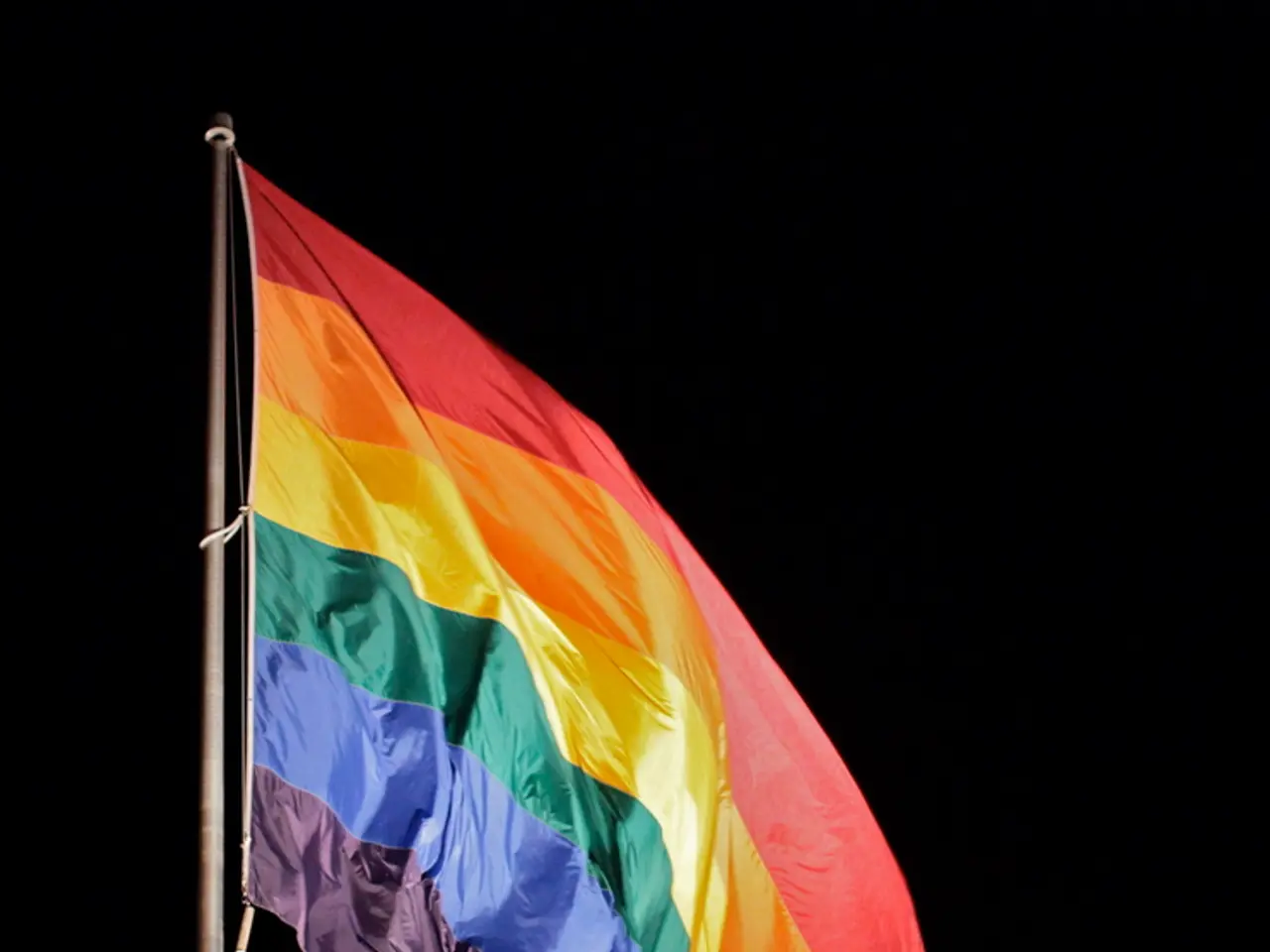On the continuous legal wrangle against Last Generation Activists in Bavaria: An Unfiltered Update 🔗
Over 83,000 signatures call for halting legal proceedings against Last Generation - Petition including 83,000 signatures advocates the halt of legal actions against Last Generation
In the chaotic and heated world of activism, few groups have stirred as much controversy as the Last Generation. This band of climate warriors, notorious for their persuasive blockades and daring road interventions, have found themselves in the crosshairs of Bavaria's justice system, with the General Prosecutor's Office in Munich escalating matters in March.
Walking a thin line between peace and chaos, Last Generation activists, including the infamous Carla Hinrichs, have found themselves slapped with a charge, though the Munich Regional Court is yet to determine its admissibility. The Last Generation is not your average activist group, and Bavaria's justice system is the only one that has been bold enough to level the accusation of forming a criminal association against them.
The bitter aftermath of their daring protests—which often involved gluing themselves to roads, causing ruckus on highways—has led to numerous complaints and a barrage of criminal proceedings. In a bid to stamp out their protest actions, the authorities raided 15 locations in Munich in May 2023. Faced with numerous complaints about these sweeping seizures, the authorities' response was curt, firm, and unwavering.
As the legal odyssey of the Last Generation unfolds, it seems that the group has since reincarnated itself as New Generations, modifying their methods of protest as well. Not one to be silenced, the group continues to rally for climate justice in their unique, headline-worthy style.
But the Last Generation's legal woes don't end there. Investigators have been eavesdropping on their communications, and funds raised for their cause have been under intense scrutiny. The authorities claim that these funds were earmarked for "further criminal acts," a stark accusation that continues to hang over the group.
Amnesty International, the Ministry of Justice, CSU, and the Munich Regional Court all play crucial roles in this ongoing saga. While Amnesty's direct involvement is unclear, the group might voice concerns over the activists' rights to freedom of expression and assembly. The German Society for Civil Rights, however, has filed a complaint with the Federal Constitutional Court over the wiretapping of the group’s press hotline.
The CSU, a powerful political party in Bavaria, has been advocating for hardline measures against climate activists, lending support to the investigations into the Last Generation. The Bavarian and federal justice ministries provide oversight to the legal proceedings, while the Munich Regional Court would preside over any trials that might transpire.
As of June 2023, at least one activist has been sentenced to eight months in jail for coercion, attempted coercion, and resisting law enforcement. Yet, a resolution to the broader "criminal association" investigation remains elusive, with the case ongoing at the investigative and prosecutorial level.
Be it the unapologetic passion of the activists or the relentless pursuit of justice, one thing is certain: the saga of the Last Generation will undoubtedly continue to captivate the hearts and minds of the public, as it navigates the complex labyrinth of the law.
- The controverted Last Generation, an activist group known for their climate-change protests, faces a charge of forming a criminal association under community law, with critical examination ongoing at the investigative and prosecutorial level.
- Simultaneously, the environmental science community and general news outlets follow the developments of this case closely, given the potential implications for freedom of expression and assembly under community law, as advocated by Amnesty International and the German Society for Civil Rights.
- Concurrently, the authorities' scrutiny extends beyond the Last Generation's protest actions, with funds raised for their cause under intense examination and claims that they were earmarked for further criminal acts under environmental-science regulations and climate-change policies.








